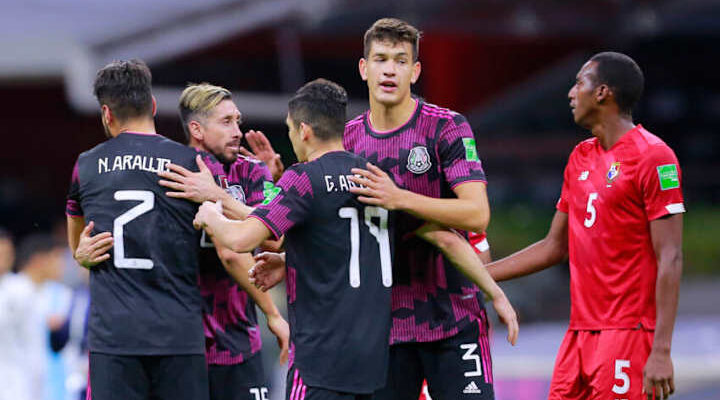Mexico`s national football team, affectionately known as El Tri, stands at a pivotal juncture. Having reaffirmed their dominance within the Concacaf region, the squad now faces the daunting yet essential task of proving their mettle on the global stage. The upcoming 2026 World Cup, hosted on home soil, casts a long shadow, intensifying the perennial quest to transcend regional accolades and finally break the chains of historical underperformance.
The Weight of History: A Familiar Echo of “What If?”
For El Tri, the narrative is often one of tantalizing potential marred by frustrating consistency – consistently falling short when it matters most. Their recent triumphs in the Concacaf Nations League and Gold Cup undeniably crown them as regional kings. Yet, these victories, however sweet, cannot fully eclipse the lingering taste of disappointment from the 2022 World Cup, where Mexico failed to advance from the group stage for the first time since 1990 (a year they were controversially banned from participating). One must rewind to 1978 to find a World Cup where Mexico competed but didn`t navigate the initial hurdles.
More infamous, perhaps, is the “Round of 16 curse.” Since 1986, Mexico has consistently reached the first knockout round, only to be sent home. This dubious streak has become a central theme in every World Cup cycle, a psychological barrier as much as a tactical one. As 2026 approaches, with the world`s most prestigious tournament landing squarely in their backyard, the pressure to dismantle this historical anomaly has never been higher.
The New Helm and the Global Gauntlet
With Javier Aguirre now at the helm – the third head coach since 2022 – a sense of stabilization appears to be taking root. However, like their North American counterparts, the USMNT, Mexico understands that regional supremacy alone does not forge global contenders. The crucial missing ingredient has often been consistent exposure and triumph against the world`s elite, outside the familiar confines of Concacaf matchups.
This understanding has prompted a deliberate shift in strategy: a rigorous pre-World Cup schedule designed to stress-test the squad against formidable international opponents. The inclusion of teams like Japan, South Korea, Colombia, and Ecuador in their fixture list before the end of the October window is no mere coincidence; it`s a calculated decision to seek those “signature victories” that validate growth beyond geographical boundaries.
Japan: A Precisely Calibrated Litmus Test
Enter the Samurai Blue. Ranked 17th in the world, Japan represents precisely the kind of challenge Mexico needs. A squad under Hajime Moriyasu that has suffered only one loss this calendar year (against Australia) and is currently on a four-match unbeaten run, Japan brings a distinct style of play, tactical discipline, and individual talent that will truly examine El Tri`s defensive fortitude and, more critically, its offensive capabilities.
For Mexico, this isn`t just another friendly; it`s a diagnostic tool. A strong showing, even a hard-fought draw, would signal tangible progress under Aguirre. Conversely, a significant defeat, while not catastrophic, would underscore the urgent need for further tactical refinement and a more potent attacking threat.
The Quest for Attacking Prowess
Mexico`s defensive organization has been commendable, notably allowing only three goals during their Gold Cup campaign. This solidity forms a strong foundation. Yet, the question marks persist in the final third. While Raúl Jiménez remains a focal point, the consistent emergence of other clinical goal-scorers has been elusive. World Cup success demands more than just a sturdy backline; it requires a diversified and clinical attack capable of breaking down top-tier international defenses.
The pressure on El Tri is constant, a societal expectation that transcends mere sport. While a loss to a team of Japan`s caliber is not an unthinkable outcome in global football, for Mexico, the stakes are always higher. The narrative surrounding their journey to 2026 will be defined by their ability to not only withstand the world`s best but to actively challenge and defeat them.
The Road Ahead: Building a Legacy
The upcoming World Cup on home soil represents a generational opportunity for Mexico to redefine its footballing legacy. The current series of challenging friendlies are not merely exhibition matches; they are crucial building blocks. They are opportunities to forge tactical coherence, instill mental resilience, and, most importantly, cultivate an attacking swagger that complements their defensive strengths. The goal is clear: not just to participate in 2026, but to truly compete, to break that infamous Round of 16 barrier, and to perhaps, finally, realize the global potential that has long been whispered about El Tri.







